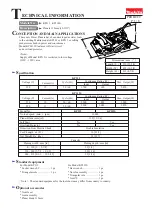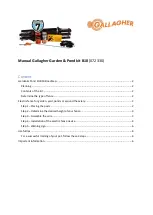
154
4000 X-Series Oscilloscopes Advanced Training Guide
A
Oscilloscope Block Diagram and Theory of Operation
Note that when you select a specific V/div setting, the scope automatically
determines the required amount of attenuation in the attenuator block and the
required amount of gain (or possibly additional attenuation) in the amplifier block.
You can think of the attenuator block, DC Offset block, and amplifier block as a
single block of analog input signal conditioning that linearly conditions a signal
that is representative of the input signal to be within the dynamic range of the ADC
block based on the V/div and offset setting of that particular channel of the scope.
Trigger Comparator and Trigger Logic Blocks
The purpose of the trigger comparator and trigger logic blocks are to establish a
unique point in time on the input signal (or combination of multiple input signals)
upon which to establish a synchronized acquisition.
Let’s assume that your input signal is a sine wave and that you want to trigger
acquisitions on the rising edge of the sine wave at the 50% level. In this case, the
non-inverted output of the trigger comparator would be a square wave with a 50%
duty cycle. If you set the trigger level above the 50% level, then the non-inverted
output of the trigger comparator would be less than 50%. Alternatively, if you set
the trigger level below the 50% level, then the non-inverted output would be
greater than 50%. Assuming that triggering is to be based on just a positive edge
crossing of a single channel, the trigger logic block would pass the non-inverted
output of the trigger comparator to the timebase block. If you have selected to
trigger on a negative edge crossing of a single channel, then the trigger logic
block would pass the inverted output of the trigger comparator to the timebase
block. The timebase block then uses the rising edge of the trigger signal as the
unique synchronization point in time. Also note that triggering can be based on
many other variables including time-qualification, as well as a combination of
input signals from multiple input channels.
Timebase and Acquisition Memory Blocks
The timebase block controls when ADC sampling is started and stopped relative to
the trigger event. In addition, the timebase block controls the ADCs sample rate
based on the scope’s available acquisition memory depth and the timebase
setting. For example, let’s assume that the scope has been set up to trigger at
exactly center screen (default setting) using a timebase setting of 1 ms/div. Let
also assume for simplicity that the scope’s acquisition memory depth is just 1000
points. Using these assumptions, the scope should acquire 500 points before the
trigger event followed by acquiring 500 points after the trigger event. At this
timebase setting, the scope will acquire 1000 points across a 10 ms time span
(1 ms/div x 10 divisions). Even though the scope’s maximum specified sample rate
may be 2 GSa/s, at this timebase setting the timebase block will reduce the
scope’s continuous sample rate to 100 k samples/sec (Sample Rate =
Memory/Time-span = 1000 samples/10ms = 100 kSa/s).
















































